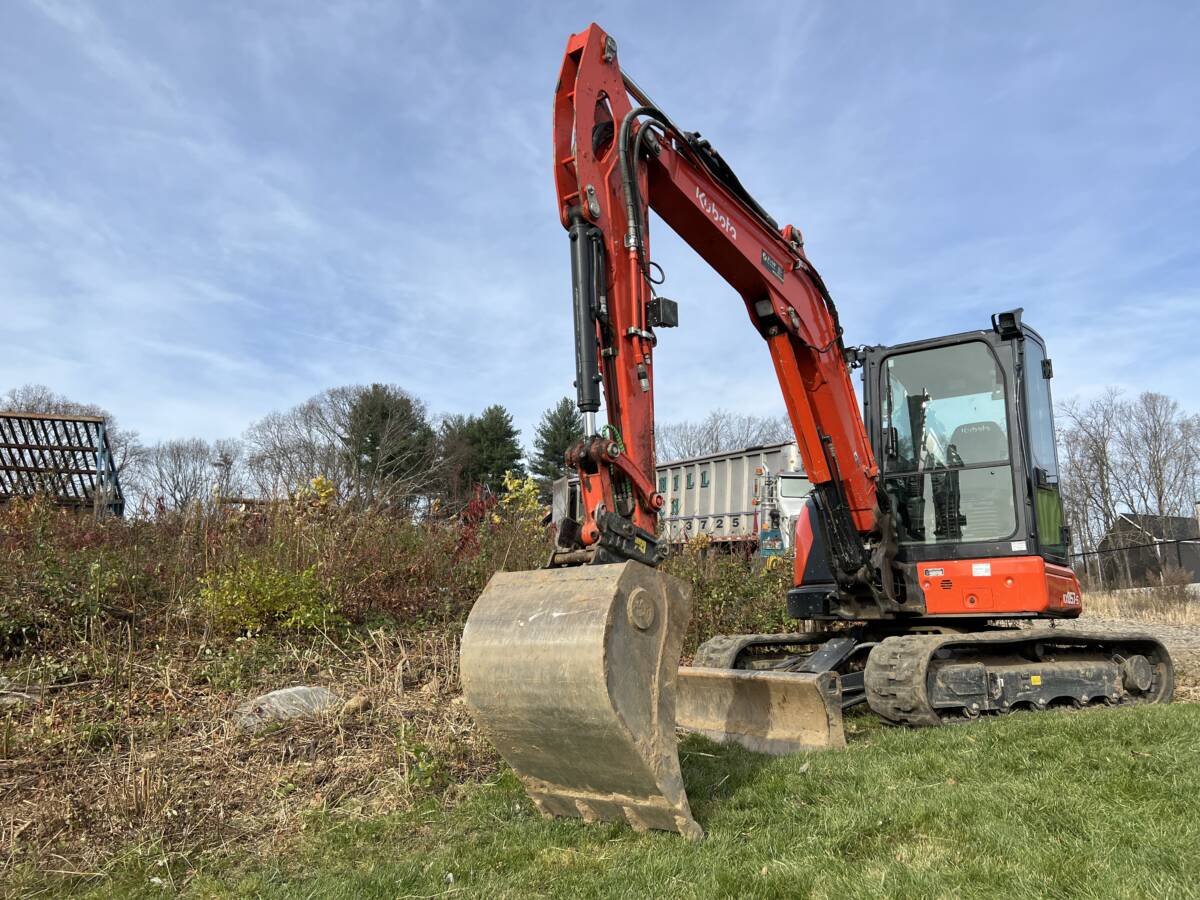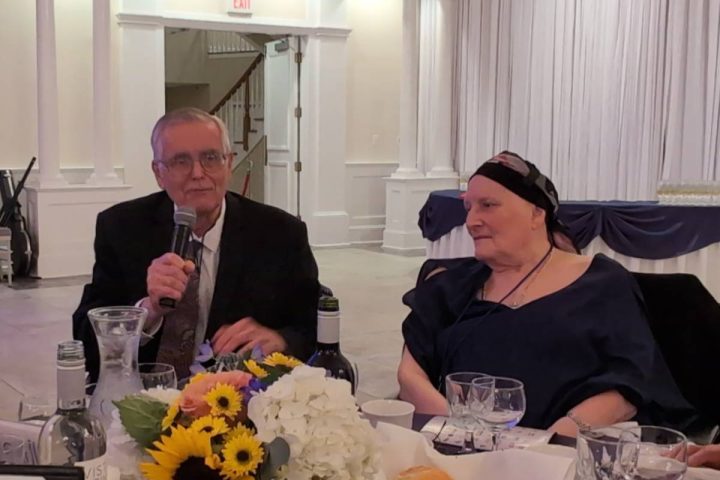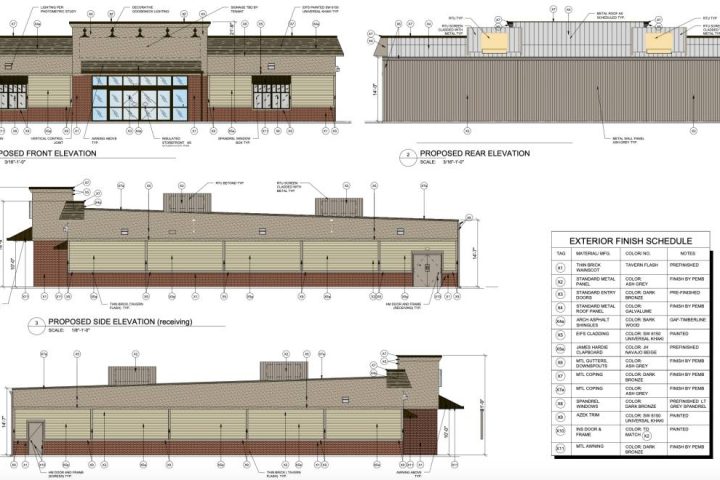MONROE, CT — Residents often blame Planning and Zoning Commission members for bringing “too many” pizza places and nail salons to town or for approving unpopular housing proposals in residential neighborhoods. But, rather than relying on their own personal preferences, commissioners can only deliberate on the applications before them and are held to strict local, state and federal regulations.
Chairman Michael O’Reilly, Planning and Zoning Administrator Kathleen Gallagher and Community and Economic Development Director William Holsworth recently met with The Sun to explain the town’s land use process, so the public has a better understanding of how decisions are made.
“We can’t say, ‘no more nail salons,'” O’Reilly said. “This is America. The government’s not telling people what to do with their property.”
O’Reilly said it is up to the applicant to do a business plan to determine what type of business will work. “If there are too many nail salons, they’ll go out of business,” he said.
“The emotion has to be left out of the approval process,” Holsworth said. “It’s not a matter of likes and dislikes, it’s a matter of the regulations and what’s allowed and not allowed.”
“Our charge is to make sure what they’re proposing is within compliance with the local, state and federal regulations,” Gallagher explained.
She said health, safety and the public welfare will always rise to the top of the commission’s concerns. Property values can also be considered.
“If the commission does not approve something that meets all of the zoning regulations, they may open the town up to possible litigation,” Gallagher said.
The commission is often sued after a decision, whether it’s a developer trying to overturn a denial or neighbors trying to overturn an approval of something they believe will have a negative impact upon their neighborhood.
A reflection of the community
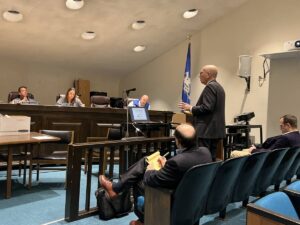
The commission has five members elected to four-year-terms and three alternates elected to two-year-terms. All are unpaid volunteers.
“Usually you start out as an alternate. There is less responsibility and you can learn,” O’Reilly said.
“Alternates are allowed to engage in a hearing, but once it’s closed they are not allowed to participate in deliberations or voting, because they’re not seated members,” Gallagher explained.
An alternate can be seated when a regular member is absent and could vote after a hearing if the application is decided that night. A regular member who misses a meeting can read the minutes and listen to the tape to get up to speed.
A new state statute requires commissioners and Zoning Board of Appeals members to participate in training, which is held biannually. Connecticut General Statute 8-4C was enacted on January 1, 2023.
When the hearing for an application is still open, members cannot talk about it publicly, because this could open the commission up to allegations of personal biases.
“The make up of the commission is a good reflection of the community,” O’Reilly said. “We have a doctor, builders, small business owners — a wide variety of people on the commission.”
In addition to O’Reilly, the Monroe Planning and Zoning Commission includes Vice Chairman Bruno Maini, Ryan Condon (who serves as secretary), Robert Westlund and Leon Ambrosey. Alternates include Domenic Paniccia, Nicole Lupo and Dominic Smeraglino III.
The commission meets on the first and third Thursday of the month. Agendas and meeting packets are available on the town website and residents can attend meetings in person or online.
Gallagher said residents can also come to Monroe Town Hall during regular hours and ask to look at an application and, if they want to make copies, they can pay a fee per page.
Local control

Though Planning and Zoning commissioners’ decisions must be in compliance with town zoning regulations, that does not mean the commission doesn’t have any control over projects developers want to build.
Aside from holding zoning hearings, commissioners write and update local zoning regulations, and update the Plan of Conservation and Development (POCD) every 10 years.
The POCD is a guide for how residents and officials envision Monroe in the future — whether it’s a goal of restricting apartments to only commercial corridors, preserving more open space or having more parks for example.
The commission drafted the town’s first affordable housing plan in 2021, which must be updated every five years, according to a state requirement.
“We are planners, not just zoners,” O’Reilly said. “It’s more long term planning with the POCD and the subcommittee for short term planning.”
The Planning and Zoning Regulations Committee can establish and update zoning regulations, sometimes when something is needed with a quicker turnaround.
For example, Panera Bread’s application included a drive-thru with a preview board allowing customers to see popular items before reaching the menu board, moving traffic along more smoothly. But Monroe’s zoning regulations for a drive-thru included no mention of a preview board.
The Planning and Zoning Regulations Committee drafted and approved a text amendment to the regulations, outlining the criteria for what a preview board could be.
If not for the amendment, the town could have lost Panera, which insisted on the preview board.
“The regulations are like a living organism,” O’Reilly said. “They’re not static. They change.”
Gallagher said regulation changes often occur when new uses come along, such as brew pubs. “It does happen when there are new uses that a town doesn’t have regulations for,” she said.
O’Reilly recalled how the town of Monroe helped restaurants during the COVID-19 pandemic by allowing outdoor dining. Those regulations became permanent after the pandemic.
Overlay districts
Long ago, the town of Fairfield had a thriving industrial zone with companies like Bullard Machine Tool Co. and Handy & Harman. But when those industrial giants moved out, the town was left with a zone of empty buildings and regulations that only allowed industrial uses.
Fairfield’s Plan and Zoning Commission approved regulations allowing commercial, office and residential uses that revitalized the area with a 70-unit apartment complex in the former Rolok Inc. building on Commerce Drive, car dealerships, BJ’s Wholesale Club and a movie theater.
Similarly in Monroe, activity on the Stevenson Lumber Co. property on Monroe Turnpike, near Route 34, had long shut down.
The Planning and Zoning Commission worked with Kimball Family Investments LLC to establish the Stevenson Business District, which breathed life into the property whose once vacant buildings are now bustling with activity.

Now called Z-Topia, the property is home to JADAR, Bethel International Ministries and Dwight Hall (which hosts events), Zwally Hauling LLC, Galbo Provisions Inc., and other businesses.
The Main Street Design District Overlay zone is a development tool the Planning and Zoning Commission recently adopted to provide a flexibility of uses in its commercial arteries, including Main Street (Route 25), Monroe Turnpike (Route 111) and Roosevelt Drive (Route 34).
An owner with a qualifying property within the MDD can apply for a Special Development District with uses not normally allowed in the zone. In exchange for approving an SDD, the commission receives more control over the specifications of what is allowed in the district.
Planning and Zoning Commission members tailor the regulations of what uses are allowed, customizing bulk standards such as setbacks, building heights etc., which may be similar to the underlying zone.
If the owner of the property later wants to change a use or requirement, he or she must come before the commission with an application to amend the SDD.
What comes before the commission?
The Planning and Zoning Commission handles applications for all subdivisions, multi-family and age-restricted residential housing, and all commercial construction.
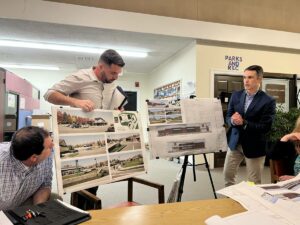
Applicants have discussions with land use staff at Town Hall to ensure all of the requirements of their application are met. This includes input from the town engineer on the stormwater management and drainage plan, and the Monroe Health Department, whose approval is needed for water usage and the septic system.
Community septic systems of a certain size require Connecticut Department of Energy and Environmental Protection approval.
Oftentimes a traffic review by the Connecticut Department of Transportation is needed and the agency can require road and intersection improvements as part of the application. For example, a portion of Monroe Turnpike was widened with a dedicated turning lane and a traffic light when Noble Gas and Panera were built.
If there are wetlands, the applicant must first come before the Inland Wetlands Commission for a wetlands permit and if a zoning variance is needed for something, such as setbacks, a hardship application must be made to the Zoning Board of Appeals.
For instance, a hardship may be terrain that does not allow a building to be setback as far as it should be.
The Architectural Review Board reviews the architectural design and provides input before writing a letter of recommendation to the Planning and Zoning Commission. The ARB is an advisory board, so the commission considers its recommendations but is not bound to them.
Once all approvals are obtained the applicant needs a building permit from the Building Department for construction, then a certificate of occupancy from the building department when construction is complete. Both permits are signed by the fire marshal, health and other departments within land use.
Some applications require staff approvals rather than a hearing. For instance, a similar retail use moving into an existing retail space.
In these cases, Gallagher said staff can decide to require a hearing before the commission, based on different circumstances.
Public concerns
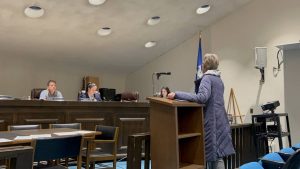
O’Reilly noted how all commission members are residents of the town too, who are familiar with its neighborhoods, streets and local traffic. Whenever an application comes before the commission, he said he does a site visit or, at a minimum, drives by the site.
“We take the public’s concerns seriously,” he said.
During hearings it is common to hear commissioners ask developers for more buffering and screening for neighboring properties. The commission can also emphasize regulations on work hours in some approvals, for instance not allowing rock crushing too early in the day or on weekends due to neighborhood noise.
O’Reilly said the commission tries to strike the right balance.
Asked how he sees the town of Monroe, O’Reilly said, “it’s still kind of the best of both worlds. There are parts of town where you’re in a more rural area, but you also have amenities.”
All respectful comments with the commenter’s first and last name are welcome.

